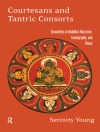For some time now the philosophy of science has been undergoing a major transfor- mation. It began when the ‘received view’ of scientific knowledge -that developed by logical positivists and their intellectual descendants – was challenged as bearing little resemblance to and having little relevance for the understanding of real science. Subsequently, an overwhelming amount of criticism has been added. One would be hard-pressed to find anyone who would support the ‘received view’ today. Yet, in the search for a new analysis of scientific knowledge, this view continues to exert influence over the tenor of much of present-day philosophy of science; in particular, over its problems and its methods of analysis. There has, however, emerged an area within the discipline – called by some the ‘new philosophy of science’ – that has been engaged in transforming the problems and methods of philosophy of science. While there is far from a consensus of beliefs in this area, most of the following contentions would be affirmed by those working in it: – that science is an open-ended, on-going activity, whose character has changed significantly during its history – that science is not a monolithic enterprise – that good science can lead to false theories – that science has its roots in everyday circumstances, needs, methods, concepts, etc.
N.J. Nersessian
Process of Science [PDF ebook]
Contemporary Philosophical Approaches to Understanding Scientific Practice
Process of Science [PDF ebook]
Contemporary Philosophical Approaches to Understanding Scientific Practice
¡Compre este libro electrónico y obtenga 1 más GRATIS!
Idioma Inglés ● Formato PDF ● ISBN 9789400935198 ● Editor N.J. Nersessian ● Editorial Springer Netherlands ● Publicado 2012 ● Descargable 3 veces ● Divisa EUR ● ID 4591863 ● Protección de copia Adobe DRM
Requiere lector de ebook con capacidad DRM












